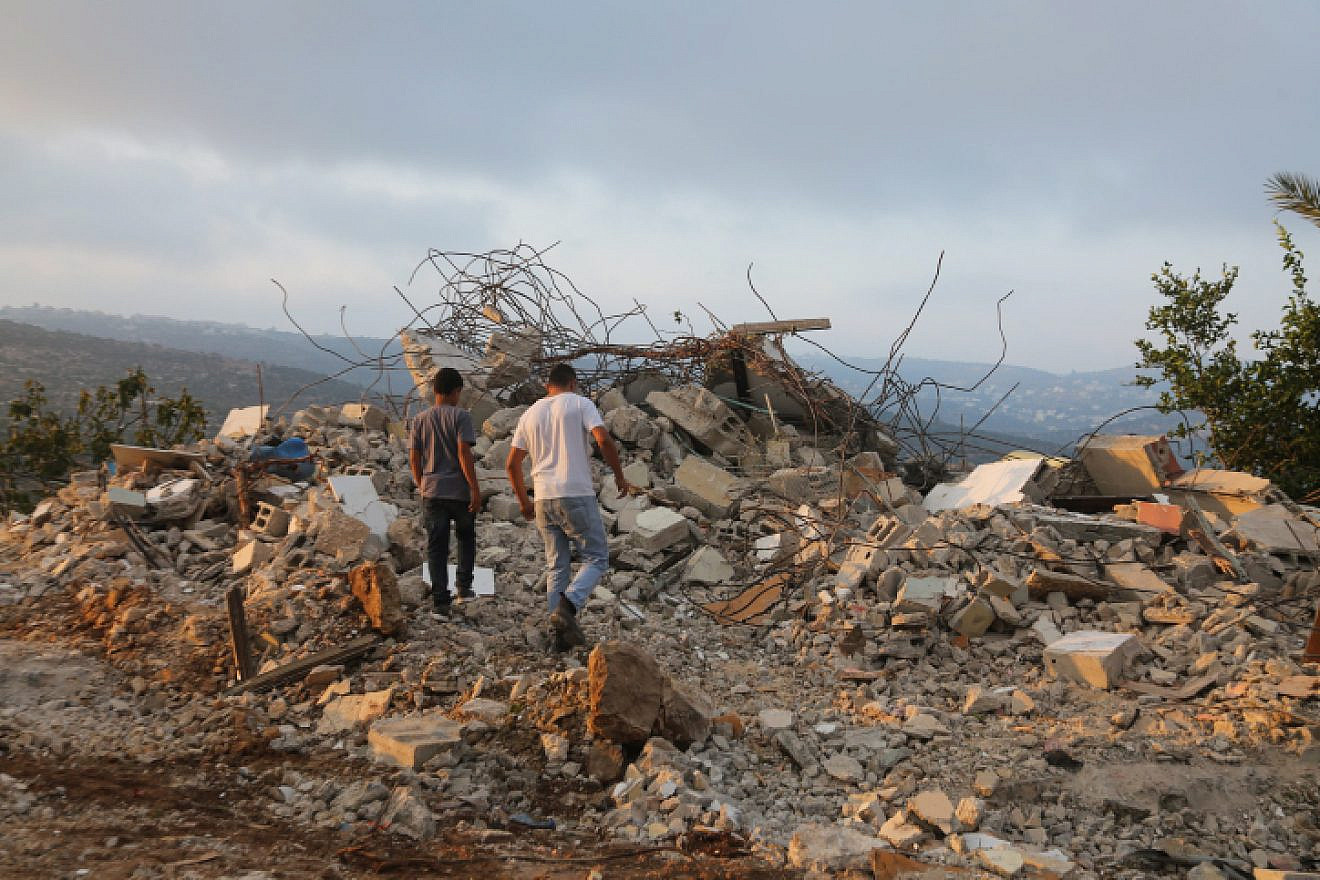The painstakingly long process for demolishing the homes of terrorists who carried out brutal and deadly terrorist attacks is demonstrated by the figures for 2023.
An Israel Hayom investigation carried out with Zionist watchdog Im Tirtzu reveals that since the beginning of 2023, 12 severe terror attacks were carried out in which 26 people were murdered. However, the home of only one of the 17 terrorists involved in those terrorist attacks, and whose identities are known for sure, was demolished.
Even though most of the terrorist attacks occurred six and seven months ago, the terrorists’ homes stand. This is despite the fact that demolishing terrorists’ homes is one of the significant deterrence measures in the hands of the IDF and the Ministry of Defense.
According to the analysis conducted by Israel Hayom and the Im Tirtzu movement’s research department, Israel’s security establishment issued demolition orders for only four homes of terrorists who murdered Israelis this year. But in actual fact, only the home of the terrorist who murdered Or Eshkar in Tel Aviv was demolished, and the home of the terrorist who murdered the Paley brothers and Alter Shlomo Lederman in a vehicular terror attack in the Ramot neighborhood in Jerusalem was sealed closed.
It also became clear that a demolition order was issued in February for the home of Alqam Khayri, the terrorist who murdered seven people in the Neve Yaakov neighborhood in Jerusalem, but the demolition did not come to fruition.
The family members of terrorists Abdel Fattah and Muhammad Kharousha, who killed Hallel and Yagel Yaniv in Samaria, received a demolition order for their home in May, but their home has yet to be demolished. This is also the case regarding the home of the terrorist who murdered Elan Ganeles the same day in the Jordan Valley.
The homes of the terrorists who murdered the three Dee family members at Hamra Interchange had an engineering mapping done, but as was mentioned, four months after the horrific attack the homes remain intact.
Mapping without demolishing
The demolition of terrorists’ homes has been a subject of controversy for years. Although the security establishment believes that demolishing them is fundamental for deterrence and the prevention of further terrorist activity, they are torn down only when Israelis are murdered.
Therefore, an attack in which one Israeli is killed would eventually lead to the destruction of the terrorist’s home, while an attack like the one that occurred two ago outside a mall in Ma’ale Adumim, in which a terrorist opened fire and wounded six Israelis, two critically, would not result in the destruction of the assailant’s home.
It should be noted that 10 terrorist homes have been demolished since the beginning of the year, the most recent of which was in Nablus (Shechem), a day after the attack at the gas station near Eli. However, these were homes of terrorists who carried out attacks in 2022, and their demolition was also significantly delayed.
So, the home demolished in Nablus belonged to the terrorist who murdered Givati Reconnaissance Unit soldier Ido Baruch in October 2022, meaning that it was torn down eight months after the attack.
The IDF maps a terrorist’s home shortly after an attack, but the process significantly slows down afterward. A study by Im Tirtzu published in Israel Hayom at the beginning of this year determined that a terrorist’s home is demolished after about three months. However, there are often longer and more significant delays.
Im Tirtzu says that in the attacks that took place since the beginning of the year, not counting the most recent ones such as the one at Eli and the one in Tel Aviv in which a pregnant woman lost her unborn child, the demolition of terrorist homes has been delayed for an average of 115 days long and counting.
The IDF argues that the demolitions will occur according to “operational considerations.” While there is a need to gather significant force for demolishing a terrorist’s home, including the use of the Yahalom Combat Engineering Corps unit, the fact remains that only one terrorist home has been demolished so far, raising doubts.
Who decides?
Alon Schvartzer, head of Im Tirtzu’s Research and Policy department, places blame on the policy framework of Defense Minister Yoav Gallant.
“The findings are very troubling, and the delay in demolishing the terrorists’ homes is unacceptable and undermines Israeli deterrence. Given that this is not an isolated event but rather a sequence of more than 10 homes of terrorists who carried out attacks in 2023 and have not been demolished yet, the question arises: Is there a directive from above to halt the demolitions of the homes of terrorists that carried out terror attacks in 2023?
“The defense minister cannot ignore the matter and can certainly not evade responsibility. We expect him to instruct the security establishment to stop delaying and immediately demolish all the homes of the terrorists that committed terror attacks in 2023. This is not how an effective security policy looks like,” Schvartzer said.
The IDF Spokesperson’s Unit replied: “There is no change in the IDF’s policy in the confiscation and demolition of terrorists’ homes. The decisions regarding the demolition of terrorist homes are made according to the recommendations given by bodies in the security establishment. Every case is examined thoroughly, taking into account the circumstances and operational and security considerations, aiming to deter potential terrorists.”


























